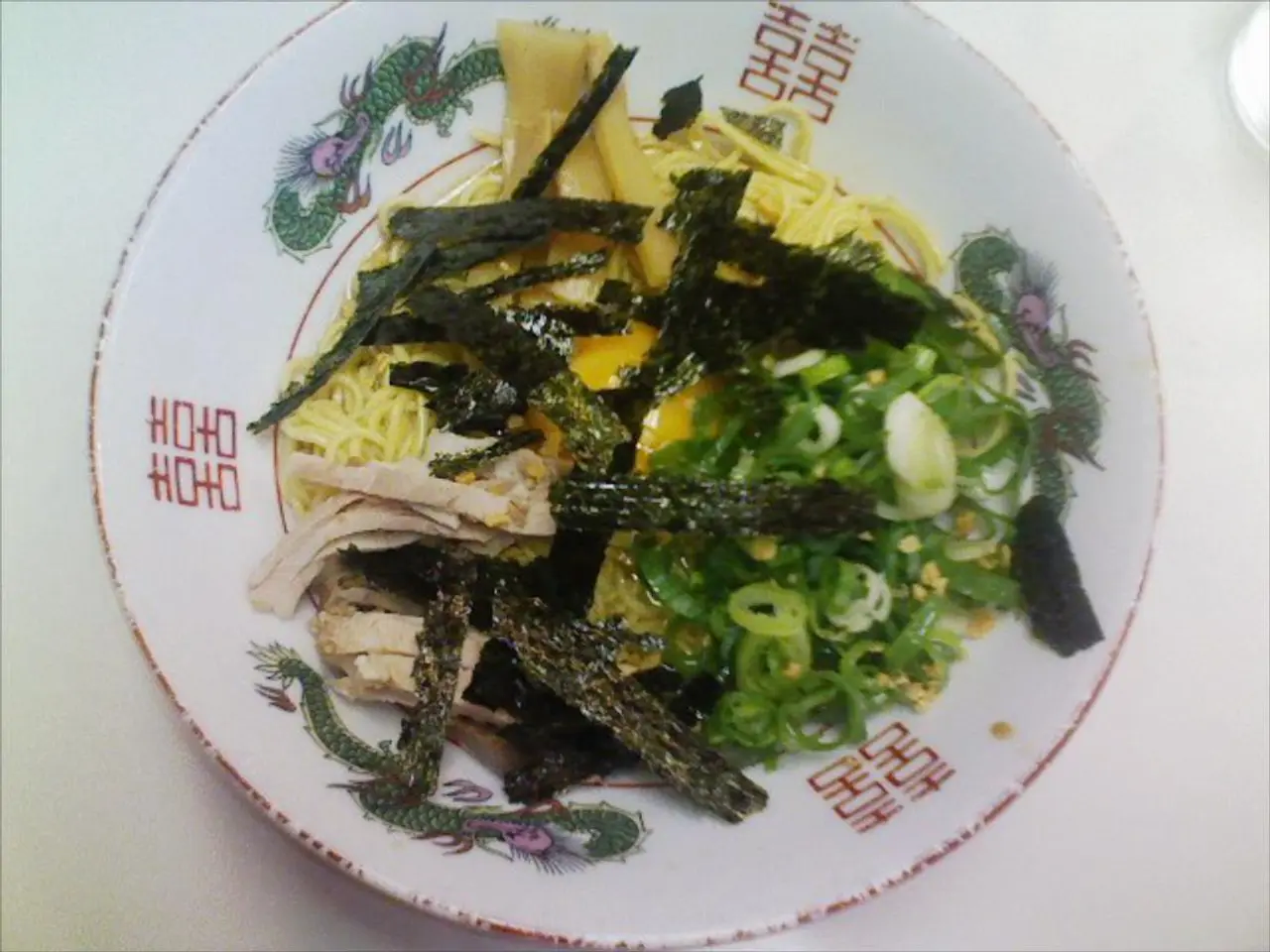Dietary guidelines for ulcerative colitis management
Ulcerative colitis (UC), an inflammatory bowel disease, can cause symptoms such as bloody diarrhea, abdominal pain, and weight loss. For individuals with UC, dietary choices can significantly impact the condition, and the appropriate diet varies depending on whether they are in remission or experiencing a flare.
During remission, the focus is on maintaining gut health and preventing flares. A balanced, gentle diet rich in easily digestible lean proteins, low-fiber fruits, and low-residue carbohydrates is recommended. For example, a recommended breakfast could include eggs, mild chicken sausage, and tolerated fruits like bananas or peeled apples; snacks may consist of rice cakes with smooth almond butter; and lunch might be a tuna salad with peeled cucumber and low-fiber crackers.
During a flare-up, it is best to simplify the diet to reduce digestive stress and symptoms like cramping and diarrhea. Recommended foods include well-cooked and steamed vegetables such as carrots, spinach, and potatoes; low-fiber or canned fruits like applesauce, bananas, and melons; refined grains such as white rice, bread, and pasta; and easily digested proteins like cooked eggs, salmon, and plain chicken or turkey. It is advised to avoid high-fiber, spicy, and greasy foods.
Additionally, diets like the Specific Carbohydrate Diet (SCD), which eliminates refined sugars and complex carbs including grains and most dairy, may help some individuals during remission to minimize flare risks.
In summary:
- Remission diet: Lean proteins (eggs, chicken, tuna), low-fiber fruits (banana, peeled apple), low-residue carbs (rice cakes, saltine crackers).
- Flare diet: Simple, bland, well-cooked foods—carrots, potatoes, applesauce, bananas, white rice, cooked eggs, salmon, plain poultry.
- General advice: Avoid irritants, eat smaller meals more frequently, stay hydrated, follow medical treatments, and consider working with dietitians for individualized plans.
References: [1] TheNutritionInsider 7-day meal plan for UC, 2025 [2] Healthline UC remission and flare prevention, 2025 [3] Iowa Clinic IBD food guidance, 2025
- Maintaining gut health during UC remission involves a balanced diet that includes easily digestible lean proteins, low-fiber fruits, and low-residue carbohydrates, as recommended by health-and-wellness entities.
- By following a diet rich in these foods, individuals with UC can help minimize the risks of flare-ups and maintain a healthy weight.
- Some examples of healthy breakfast, snack, and lunch options during remission include eggs, mild chicken sausage, rice cakes with smooth almond butter, tuna salad with peeled cucumber, and low-fiber crackers.
- During a flare-up, UC patients should simplify their diet to reduce digestive stress, opting for well-cooked and steamed vegetables, low-fiber or canned fruits, refined grains, and easily digested proteins.
- Specific Carbohydrate Diet (SCD) may assist some individuals during remission in minimizing flare risks, as it eliminates refined sugars and complex carbs.
- In both remission and flare-up stages, it is crucial to avoid high-fiber, spicy, and greasy foods, as these can exacerbate symptoms.
- Other nutrition considerations to treat UC should include eating smaller meals more frequently, staying hydrated, following medical treatments, and consulting with dietitians for individualized dietary plans.
- Ulcerative colitis nutrition science is constantly evolving, and individuals would benefit from staying informed through credible sources like TheNutritionInsider, Healthline, and Iowa Clinic.
- Skin-care and fitness-and-exercise routines also play a role in overall health and well-being for UC patients, complementing their personalized nutrition strategy.
- Incorporating the best UC-friendly recipes into one's lifestyle can help establish long-term health benefits and increase overall quality of life.




